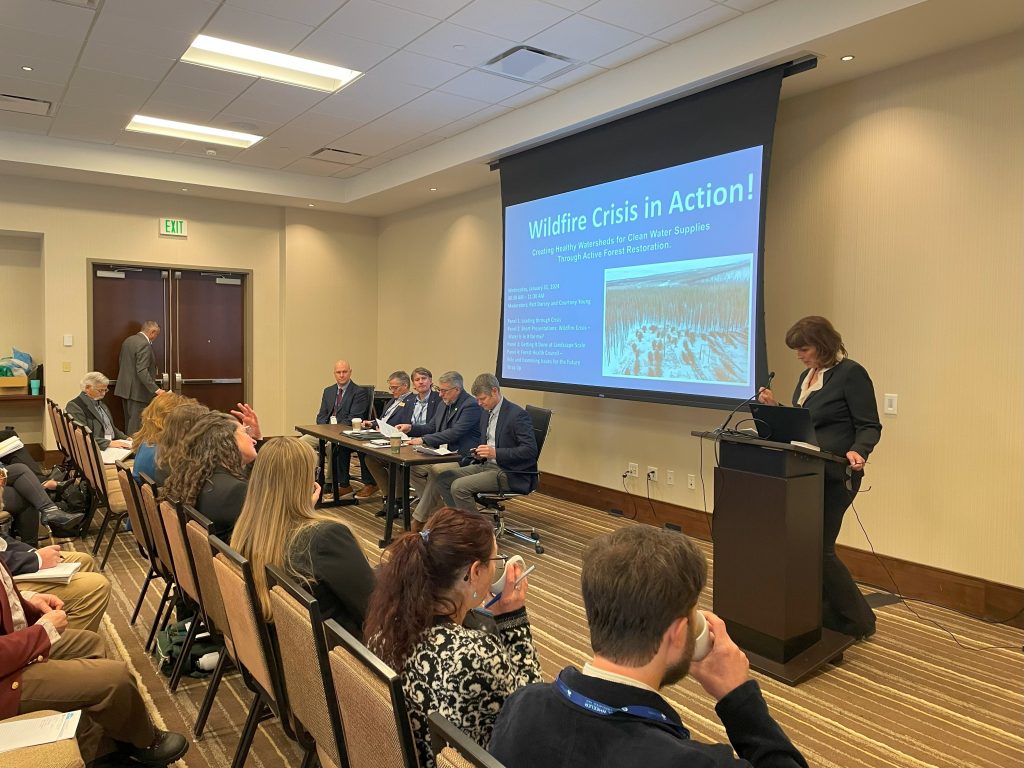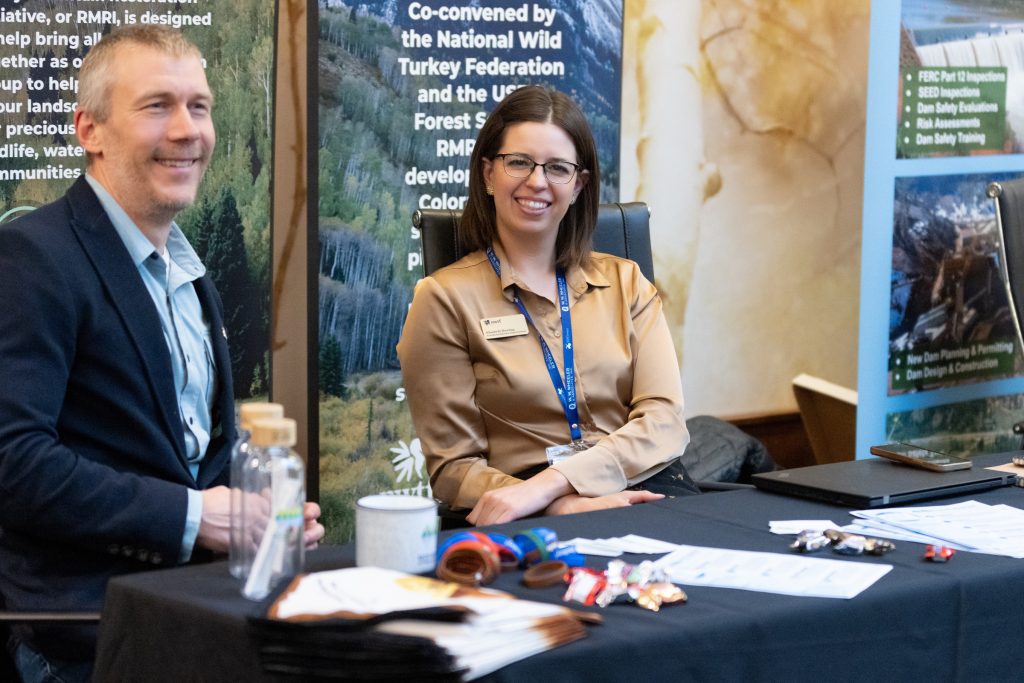Highlights from the 2024 Colorado Water Congress
Recently, the Colorado Water Congress held their annual convention in Aurora, Colorado, bringing together water professionals, policymakers and stakeholders from across the state.
The 2024 event focused on themes of risk, resilience and growth through presentations and panel discussions providing valuable insights into the challenges and opportunities facing Colorado's water community.
During the event, Patt Dorsey, Director of Conservation Operations in the West for the National Wild Turkey Federation, served as the moderator for the "Wildfire Crisis Strategy in Action!" workshop. This workshop addressed the pressing issue of catastrophic wildfires, which pose a significant threat to watershed health and water supplies.

The USDA Forest Service, the NWTF, and over 50 partners of the Rocky Mountain Restoration Initiative have been working together since 2019, recognizing the crucial link between healthy forests and healthy watersheds. The workshop aimed to highlight Colorado's high-priority watersheds, the collaborative efforts of various partners, and the importance of cross-boundary coordination among federal, state, private, and tribal entities.
The workshop kicked off with a leadership panel with Frank Beum of the Forest Service, Dan Gibbs of the Colorado Department of Natural Resources, Matt McCombs of the Colorado State Forest Service, Doug Vilsack of the Bureau of Land Management and Clint Evans of the Natural Resources Conservation Service. Liz Dowling, RMRI Coordinator for the NWTF, recognized how powerful it was to have so many of our leaders sitting together in the same room. Their commitment to working collaboratively with one another speaks volumes. Discussions centered around the innovative approaches embodied by the Wildfire Crisis Strategy, RMRI, and Shared Stewardship, emphasizing a paradigm shift in operational approaches.
Importantly, the workshop underscored that addressing wildfire impacts is a collective responsibility that extends beyond Forest Service lands, requiring collaboration across various agencies and stakeholders. As emphasized by panelist Frank Beum, Forest Service regional forester, “...we're working at the speed of trust," highlighting the critical role of trust-building and collaborative efforts in addressing this multifaceted challenge.
During the workshop, a series of short presentations were held, covering various topics. These presentations included discussions on creating wildfire-ready watersheds, updates on the Colorado Front Range and insights into the wildfire impacts stemming from the East Troublesome and Cameron Peak Fires and success stories along the Colorado Front Range, particularly focusing on initiatives such as the Upper South Platte Partnership and Forests to Faucets.
Representatives from the South Western landscape of Colorado convened in the following session to share the uniqueness of their landscape, the centrality of water in their priorities, outline the integration of water management with other key objectives and discuss their local success in implementing Shared Stewardship on a significant scale. Their honest and thought-provoking dialogue not only highlighted the pivotal factors contributing to their achievements but also underscored the challenges they face in attaining their objectives.
Subsequently, partners from Colorado's Forest Health Council elaborated on their mandate and the pertinent issues they are addressing. They provided comprehensive insights into their legislative framework, organizational structure, committee operations, in-person gatherings and their role in shaping legislation. Emphasizing inclusivity, they extended an open invitation to all interested parties to participate in their meetings, which are accessible to the public.
The day concluded with Travis Smith, President of the Colorado Water Congress board and representative from the NWTF, moderating a discussion featuring Tom Spezze, NWTFF National Director of Conservation Programs, and Brian Ferebee, Chief Executive for Intergovernmental Relations and Chief Executive of the Wildfire Crisis Strategy at the Forest Service.
The discussion centered around the Wildfire Crisis Strategy, the urgency for a new approach and the important role of all the partners – federal, state, and private – to implement a long-term strategy to reduce the risk of wildfire impacts.

Over the following two days, the Colorado Water Congress facilitated a series of expert presentations addressing a wide range of critical topics, including water resource planning, legislation, state affairs, land and water use planning, wildfire, drought, flood risk, western water priorities and more.
The discussions during the event focused on the need for a culture shift and a growing recognition of the need for forward-thinking approaches to address the complex challenges facing water resources and community resilience in the region.
Overall, the Colorado Water Congress was a phenomenal event providing a platform for diverse voices within the community to converge and share their perspectives, insights and innovative ideas for developing long-term strategies aimed at safeguarding the future of our communities in Colorado.
